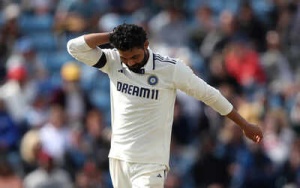The sudden passing of actress and model Shefali Jariwala, best known for her appearance in the iconic song "Kaanta Laga," has sent shockwaves through the entertainment industry. Reports indicate that she suffered a sudden cardiac arrest on the night of June 27th and, despite immediate medical attention at a Mumbai hospital, was pronounced dead at the young age of 42.
While the precise cause of death is still being investigated, initial reports point towards sudden cardiac arrest, a critical medical emergency characterized by the abrupt cessation of the heart's beating. This tragic event underscores the fact that cardiac arrest is not limited to older individuals or those with pre-existing heart conditions. The body often exhibits subtle warning signs that, while easily dismissed, can be crucial for early detection and intervention.
Here are five frequently overlooked warning signs of sudden cardiac arrest:
Feeling tired after a demanding day is normal, however, unexplained fatigue that seems unusually intense, lingers despite rest, and lacks an obvious cause should raise concern.

The American Heart Association identifies unexplained fatigue as a potential early indicator of heart-related issues, particularly in women. Individuals who have experienced cardiac arrest have reported debilitating fatigue in the days or weeks leading up to the event. This fatigue often manifests as a persistent loss of energy, distinct from typical sleepiness. If you experience unusual sluggishness, especially during minor activities like walking short distances or climbing stairs, it is crucial to seek medical advice.
While many associate cardiac events with intense chest pain, the initial symptoms are often more subtle, presenting as a feeling of tightness, fullness, or an unidentifiable discomfort in the chest.
This is particularly prevalent in individuals under 50 and women, where symptoms can deviate from the stereotypical "clutching-the-chest" presentation. Patients have described it as a sensation of heaviness, akin to a tightening belt or an invisible weight pressing down on the chest. These sensations should not be easily dismissed as mere gas, muscle strain, or stress. If the feeling arises suddenly or worsens with exertion, it could indicate that the heart is not receiving adequate oxygen, a potential precursor to cardiac arrest.
Experiencing a rapid heart rate following exercise or stress is normal. However, when the heart beats unusually fast, too slowly, or skips beats without a clear trigger, it warrants medical attention.

This condition, known as arrhythmia, is frequently observed in individuals prior to cardiac arrest. It can manifest as palpitations, a fluttering or pounding sensation in the chest, or remain asymptomatic and only detectable through medical testing. Rhythm changes occurring during rest or sleep, particularly when accompanied by dizziness or shortness of breath, are particularly concerning. They suggest a malfunction in the heart's electrical signals, a significant factor in cardiac arrest.
While breathlessness is often linked to respiratory problems, it can also be a sign of cardiac distress. In many cardiac arrest cases, individuals experience unexplained shortness of breath that seems disproportionate to their activity level.
This can occur even while at rest or during light activities. It may feel like an inability to fully catch one's breath, despite the lungs appearing healthy. Some individuals may also experience mild chest discomfort or light-headedness. This occurs because the heart's inability to pump effectively leads to a drop in oxygen supply, resulting in breathing difficulties. Recognizing this symptom in the days leading up to a major cardiac event can provide a crucial window for intervention.
While dizziness can stem from various benign causes, sudden and unexplained dizziness, especially when coupled with nausea, sweating, or paleness, should not be ignored.
Cardiac arrest often impairs blood flow to the brain. When the heart's pumping action is compromised, the brain senses the deficiency, leading to dizziness, confusion, or even temporary blackouts. Many cardiac arrest survivors report experiencing fainting spells or feelings of faintness in the days preceding the event, but did not attribute it to their heart. These episodes can serve as crucial warning signs, particularly for individuals with no prior history of such issues.
Disclaimer: This article is based on available reports and general health guidelines and does not constitute medical advice. Consult with a healthcare professional for any health concerns.
Newer articles
Older articles
 Moto G54 Gets Significant Price Cut in India, Making Budget Smartphone Even More Appealing
Moto G54 Gets Significant Price Cut in India, Making Budget Smartphone Even More Appealing
 Africa's Rift Valley: Mantle Upwelling Drives Continent's Split and Birth of New Ocean
Africa's Rift Valley: Mantle Upwelling Drives Continent's Split and Birth of New Ocean
 X Cracks Down: Over Half a Million Indian Accounts Suspended for Policy Breaches
X Cracks Down: Over Half a Million Indian Accounts Suspended for Policy Breaches
 Vijay Sethupathi Apologizes Amid Controversy Over Son Surya's Debut Film 'Phoenix'
Vijay Sethupathi Apologizes Amid Controversy Over Son Surya's Debut Film 'Phoenix'
 Jadeja's Accuracy Questioned: Ex-India Pacer Slams Spin Strategy in England Test Loss
Jadeja's Accuracy Questioned: Ex-India Pacer Slams Spin Strategy in England Test Loss
 IRCTC's AI Chatbot Revolutionizes Train Ticket Booking, Refunds, and Information Access
IRCTC's AI Chatbot Revolutionizes Train Ticket Booking, Refunds, and Information Access
 Google Maps Enhances Directional Accuracy with Fused Orientation Provider Update
Google Maps Enhances Directional Accuracy with Fused Orientation Provider Update
 Ashada Gupt Navratri 2025: Unveiling Dates, Sacred Rituals & Hidden Significance of the Monsoon Festival
Ashada Gupt Navratri 2025: Unveiling Dates, Sacred Rituals & Hidden Significance of the Monsoon Festival
 xAI to Open Source Grok, Democratizing Access to Musk's AI Chatbot
xAI to Open Source Grok, Democratizing Access to Musk's AI Chatbot
 Android Users Urged to Patch Now: Critical Security Flaws Expose Devices to Attacks
Android Users Urged to Patch Now: Critical Security Flaws Expose Devices to Attacks